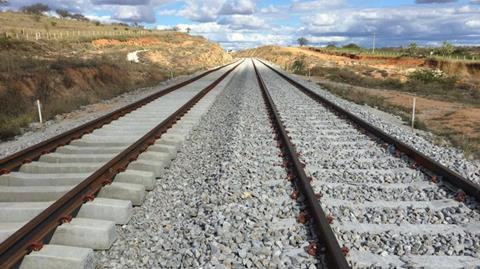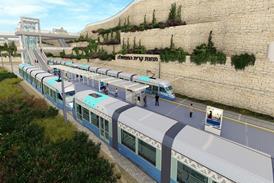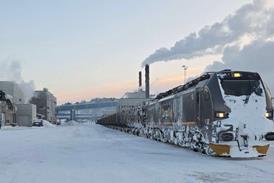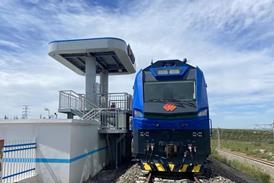
BRAZIL: Another step has been taken towards construction of the planned EF118 project for a 577 km rail link running inland from the South Atlantic coast at São João da Barra to Nova Iguaçu, northwest of Rio de Janeiro.
During a meeting with the Consórcio Publico Intermunicipal de Desenvolvimento do Norte e Noroeste Fluminense in Rio de Janeiro state, the federal government signalled its agreement to invest in the project.
The move follows a letter sent to national land transport agency ANTT in October 2024 from the Federation of Industries in Rio de Janeiro state (Firjan) calling for the EF118 project to be implemented. This was followed by a meeting between representatives of municipalities in the north and northwest of Rio de Janeiro state, Executive Secretary at the Ministry of Transport George Andre Palermo Santoro and Member of Parliament for Rio de Janeiro state Julio Luiz Baptista Lopes.
Implementation of the project is linked with renewal of the Ferrovia Centro Atlântica operating concession for the 7 857 km Malha Centro-Leste network, for which public hearings were held during October. FCA is controlled by Vale Logística Integrada, and the current 30-year contract to run the FCA network is due to expire in August 2026. Current proposals envisage that part of the network will be returned to the federal government, and Firjan has put forward suggestions that this should be linked to the EF118 project going ahead.
Following completion of the hearings, ANTT will analyse the project further, after which the Federal Court of Auditors will make its own assessment of the project. The process is likely to be completed in the second half of 2025.
Around 170 km of the planned alignment runs through the state of Espírito Santo with the remainder located in Rio de Janeiro state. When complete, the line would eventually include a northern extension to Cariacica where it would connect with the 1 000 mm gauge Estrada de Ferro Vitória a Minas; at its southern extremity it would connect with the MRS Logística network in Nova Iguaçu.
The initial phase of the project is expected to generate around RS$2∙5bn in the local economy and to open up opportunities for more than 65 000 jobs.

















